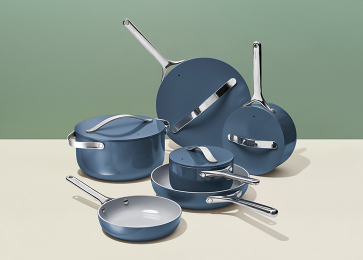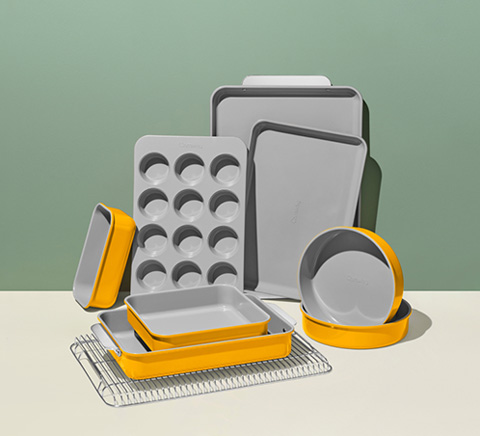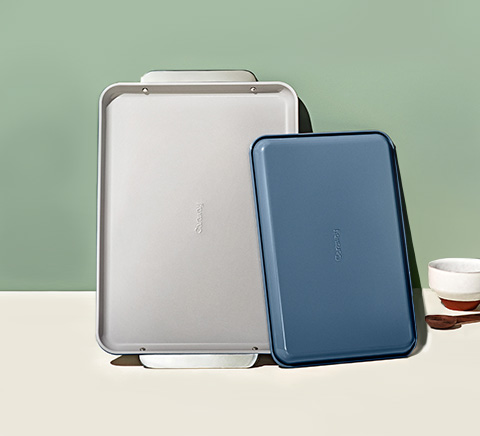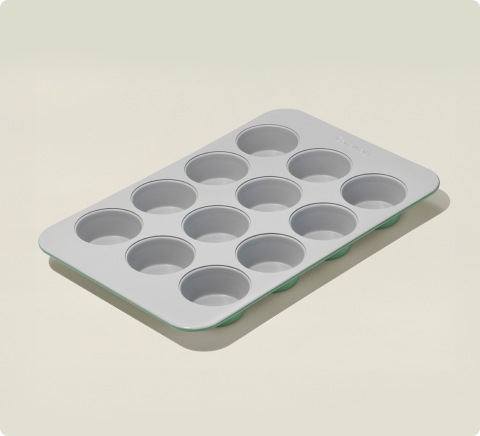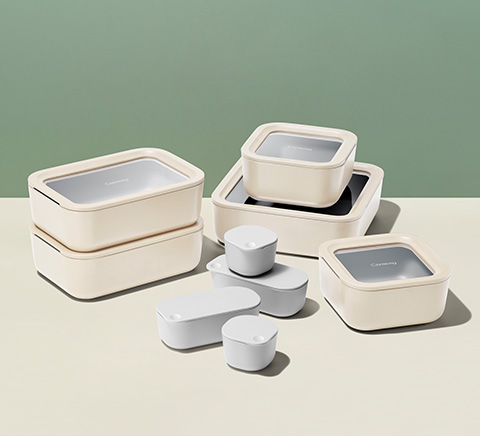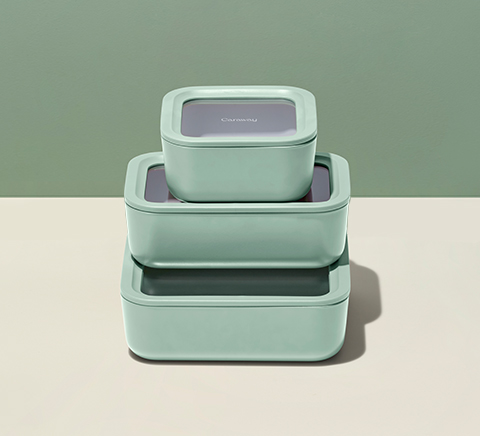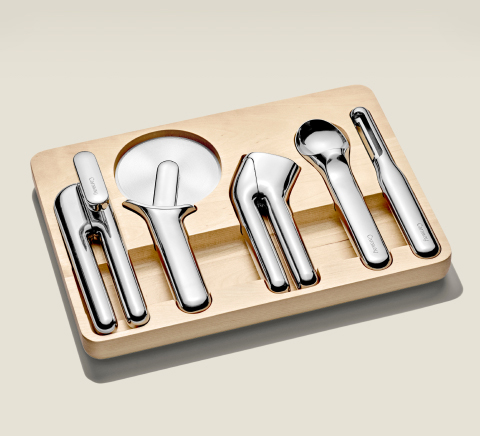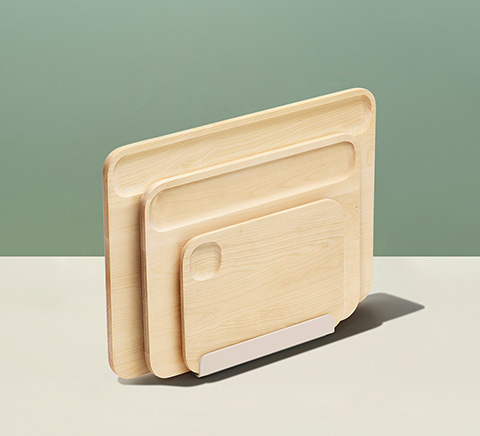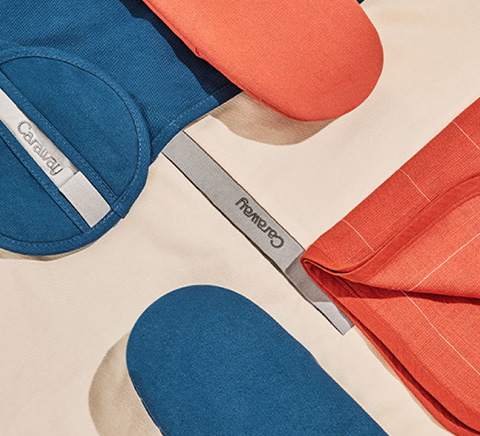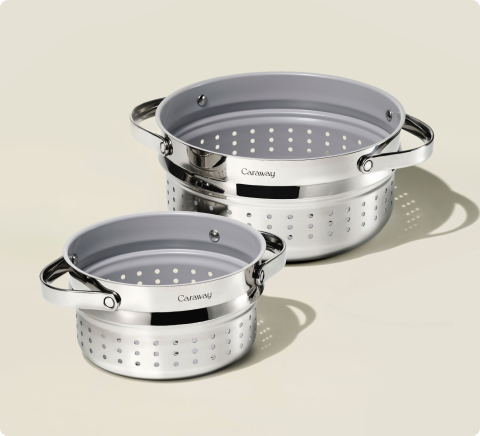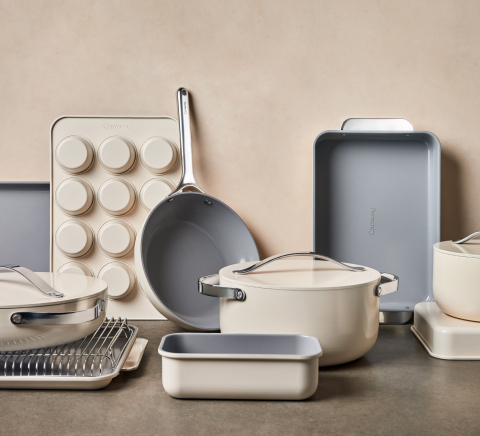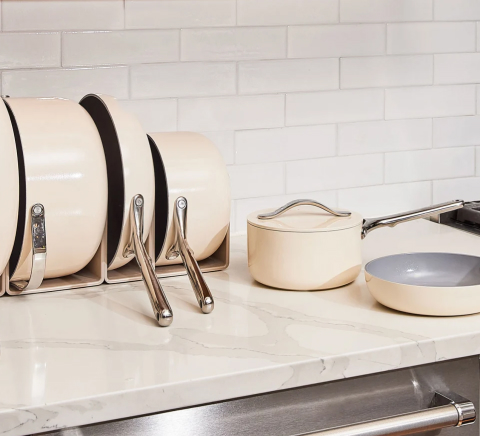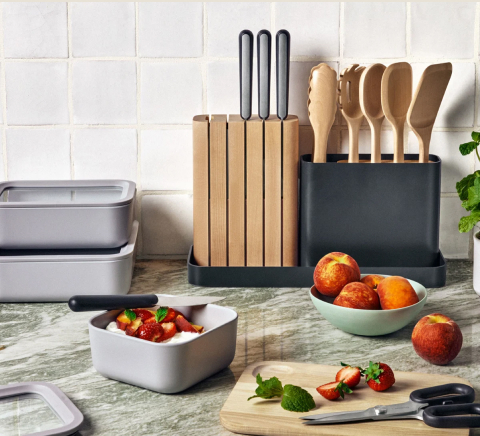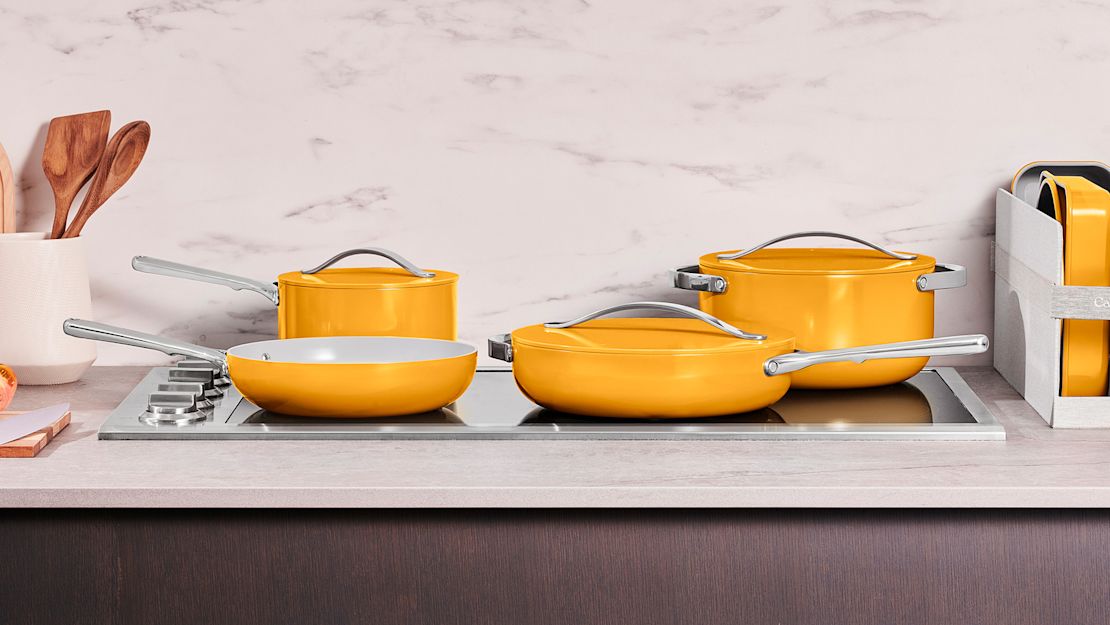Ever wondered why your neighbor’s kitchen never seems to get as steamy as yours or why their water boils in almost half the time? The secret might just be sitting on their countertop: an induction cooktop.
At Caraway, we're all about making your kitchen work smarter, not harder. That's why we're taking a closer look at induction cooking, which is arguably the most efficient, safe, and sleek cooking technology available today.
It's time to demystify this kitchen game-changer and explore how it fits perfectly with our cookware, making your cooking experience not only faster but also environmentally friendlier and just plain easier.
What Is an Induction Cooktop?
An induction cooktop looks like its electric counterpart but works on a completely different principle. Instead of heating pots and pans through direct contact with a flame or an electric heating element, induction cooktops use electromagnetic fields to heat the cookware. This means the cooktop itself doesn't get as hot as the pot or pan, making it a safer option for busy kitchens.
For induction cooking to work, you need the right kind of cookware---ones that are induction-compatible. Lucky for you, all Caraway pans have a magnetized stainless steel base designed to work flawlessly on your induction stovetop. It's smart technology for smart cooking, bringing high efficiency and safety right to your kitchen.
How Does Induction Cooking Work?
At its heart, induction cooking relies on a fascinating bit of physics involving electromagnetic energy. When you switch on an induction cooktop, an electric current flows through a copper coil underneath the glass surface, creating a dynamic magnetic field.
Place a pan with a magnetic base---like our Ceramic-Coated Cookware---on top, and voilà, the magnetic field induces tiny electric currents in the pan's metal. These currents turn the pan itself into the heater.
It's a direct, efficient way to cook, cutting out the middleman and directly heating your food.

Benefits of Induction Cooking
Induction cooking isn't just a modern marvel for its tech-savvy approach to meal prep---it brings tangible benefits to your kitchen that you'll notice from the first use.
Here's how induction cooking stands out:
-
Energy Efficiency: Induction cooktops convert up to 90% of the energy consumed into direct heat, compared to 55 to 65% for electric and gas cooktops. Less wasted energy means lower utility bills and a happier planet.
-
Safety: The cooktop surface remains relatively cool since heat is generated directly in the pan. This minimizes burn risks and makes it a safe option for families.
-
Speed: Induction cooking heats pans and boils water significantly faster than traditional methods. What this means for you is less waiting and more cooking.
-
Temperature Control: With induction, you get precise temperature control at your fingertips, allowing for perfectly simmered sauces and expertly seared steaks every time.
-
Easy Clean-Up: Without open flames or exposed heating elements, spills and splatters don't burn onto the cooktop surface, making clean-up a breeze.
-
Air Quality: Since induction cooking doesn't generate smoke or burn gas, it contributes to a cleaner air environment in your kitchen.
Each of these benefits represents a step towards more efficient, safe, and enjoyable cooking experiences, aligning perfectly with Caraway's mission to bring joy and simplicity into your kitchen.
Induction Cooking vs. Gas
When choosing between induction and gas, it often comes down to comparing traditional charm against modern efficiency. Gas stoves have been the go-to for professional kitchens due to their fast heat and high-temperature capabilities. However, induction cooking is making a compelling case for being the better option.
Here's why:
Precision
Unlike a gas burner's sometimes uneven flame, induction offers unparalleled precision and instant adjustments to temperature changes, perfect for dishes requiring delicate heat settings.
Energy Use
Gas cooktops are less energy-efficient, allowing a lot of heat to escape into the air around the pot. Induction cooktops ensure more energy goes directly into cooking food.
Cleanliness
Gas stoves require meticulous cleaning around knobs, grates, and burners to prevent build-up. The flat, glass surface of induction cooktops means a simple wipe-down does the job.
Safety and Air Quality
Gas cooking can increase indoor air pollutants and requires caution to prevent gas leaks. Induction cooking eliminates these concerns, offering a safer and healthier kitchen environment.

What Cookware Is Suitable for Induction Cooktops?
To harness the benefits of induction cooking, having the right cookware is key. Not all pots and pans work with induction cooktops, as the cookware needs to have a magnetic base to interact with the electromagnetic field.
Here's what to look for:
-
Magnetic Materials: Stainless steel and cast iron are top choices for induction cooking, thanks to their magnetic properties. Remember, not all stainless steel is created equal; ensure it's labeled as induction-compatible.
-
Flat Bottoms: Cookware with flat bottoms ensures maximum contact with the cooktop for even heating. Our cookware is designed with this in mind, providing efficient and uniform cooking.
-
Specific Sizes: The diameter of your pan's base can affect its compatibility with certain induction hobs. Our pans are designed to work seamlessly with most induction cooktops.
Choosing induction-compatible cookware ensures you get the most out of your induction cooktop, marrying the convenience of modern technology with the timeless joy of cooking.

Which Caraway Cookware Is Perfect for Your Induction Cooktop?
Switching to induction cooking might seem daunting, but it's all about having the right tools for the job. At Caraway, we've designed our cookware to not only meet the needs of modern home cooks but also excel on induction cooktops.
Here's a quick rundown of our induction-friendly lineup:
Sauce Pan
Our sauce pan is ideal for sauces, grains, and boiling water quickly and evenly. Its compact size doesn't compromise on efficiency, making it a staple in any kitchen.
Fry Pan
Our fry pan is perfect for frying, searing, and sautéing. Its magnetic stainless steel base ensures even heating and superb performance on induction cooktops.
Dutch Oven
This versatile piece is great for soups, stews, and braising. Our dutch oven is designed for induction efficiency, making cooking large meals simpler and faster.
Saute Pan
Our saute pan is the go-to for one-pan meals. It offers ample space and is induction-compatible for a variety of cooking tasks, from sautéing vegetables to browning meat.
The Dos and Don'ts of Induction Cooking
Embracing induction cooking means stepping into a world where speed, control, and efficiency reign supreme. While the transition from traditional electric or gas cooktops to induction technology is straightforward, there are key practices to enhance your cooking experience and protect your investment.
Here are the essential dos and don'ts to keep in mind:
Do:
-
Optimize Power Settings for Different Cooking Needs: Experiment with varying power levels to find the perfect settings for everything from simmering to searing.
-
Keep the Cooktop Clean: Wipe down the induction hob after use. Its glass surface makes this task easy and prevents spills from becoming burnt-on messes.
-
Enjoy Precise Temperature Control: Take advantage of the precise control over your cooking temperature. It's perfect for dishes that require a delicate balance of heat.
-
Leverage the Speed: Use induction's quick heating capability to boil water faster and cook meals more efficiently, saving you time.
-
Utilize Proper Ventilation: Even though induction cooking is cleaner, ensuring your kitchen is well-ventilated will maintain optimal air quality.
Don't:
-
Forget the Learning Curve: While induction cooktops are user-friendly, there's a slight learning curve, especially if you're transitioning from gas burners. Give yourself time to adjust.
-
Use Cookware With Rough Bottoms: To protect the glass surface of your induction hob, avoid using pots and pans with rough or scratched bottoms.
-
Ignore Cookware Size: Make sure the base of your cookware matches the size of the induction burner to ensure even cooking and maximum efficiency.
-
Overlook Safety Features: Although induction cooktops are safer because they don't use open flames or become as hot as traditional cooktops, always handle cookware with care, especially when it contains hot food or liquids.
-
Assume All Metals Work: Remember, not all metals are magnetic. Cookware made from copper, glass, or aluminum without a magnetic layer won't work on an induction cooktop.
A Final Word
As we wrap up our journey through the world of induction cooking, it's clear that the shift toward this innovative technology is not just a trend but a move toward smarter, safer, and more sustainable cooking practices.
Whether you're upgrading from traditional electric cooktops or making the switch from a gas stove, induction cooking offers a level of efficiency and control unmatched by conventional methods. The cooking surface of an induction stove heats your cookware directly, saving energy and reducing cook times, all while keeping your kitchen cooler and cleaner.
At Caraway, we understand the importance of matching top-notch kitchen appliances with equally impressive cookware. Our specially designed pieces meet the requirements of induction technology and elevate your cooking experience, ensuring every meal is a testament to the benefits of induction cooking.
Embrace the change, enhance your culinary skills, and join the growing number of home cooks who have discovered the unmatched convenience and quality of cooking with an induction stove. Upgrade your kitchen with Caraway today, and let's cook up a storm with precision, efficiency, and style.
Sources:
Pros and Cons of Induction Cooktops and Ranges | Consumer Reports
Is It Time to Switch to an Induction Stove? | AARP
The Benefits of Switching to Induction Cooking | My Green Montgomery
Can Gas Cooking Impact Your Health And Indoor Air Quality? | Forbes
